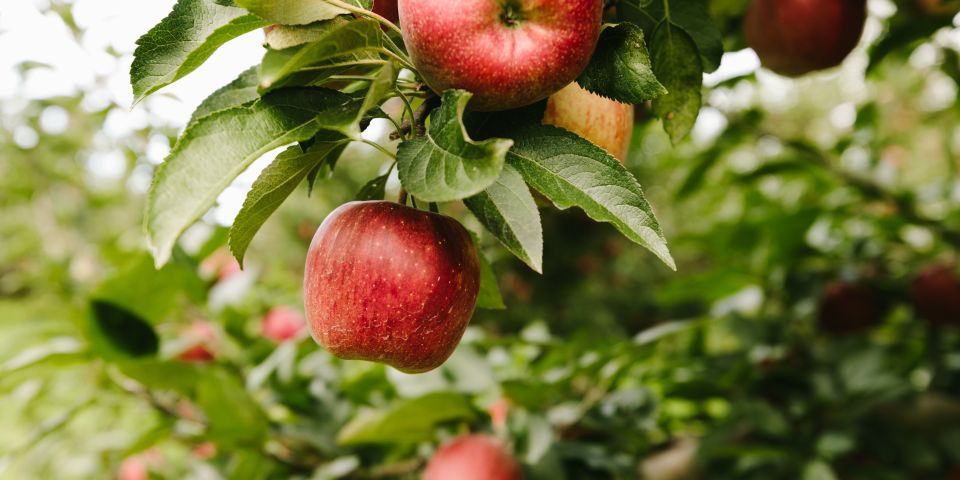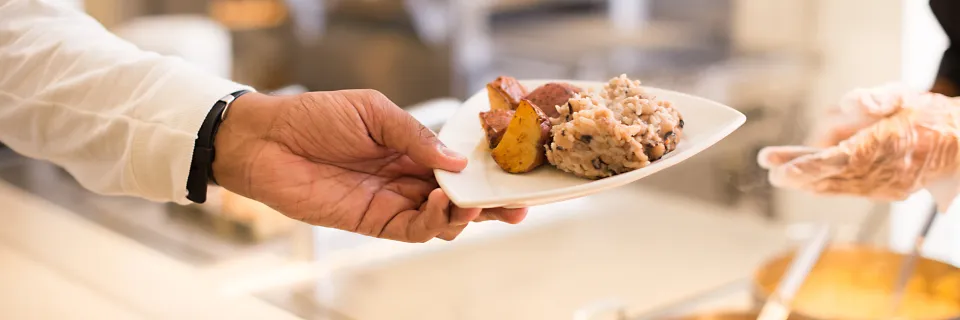Let's Connect
Our friendly and educated team is here to partner with you every step of the way. Connect today to learn of all the ways to partner with The Common Market.
Delivering local food for the common good.

by Kayla Dwyer for The Morning Call
Lehigh University’s Rathbone dining hall provides nearly 5,500 meals a day on average, not including some 300 employee meals. Right now, about 10 percent of those meals consist of “real” food — local,
fair-trade, humane or organic. But by 2020, the college wants to double that.
“It’s very doable,” Bruce Christine, dining services general manager, said.
Lehigh, [managed by Sodexo] is now the third college in Pennsylvania — joining the University of Pittsburgh and Haverford College — to sign a pledge with the Real Food Challenge, a national movement to shift $1 billion of university food budgets from industrial farms and toward local and fair sources.
“Every year we look at certain key elements — protein grids, vegetables or even grains — to find where we can make the biggest impact for the Real Food Challenge and get the best bang for our buck for the client,” Chef Joseph Kornafel said.
The relationship between Lehigh and the challenge began in 2013. Each year since, a team of students has assessed the university dining halls during the high-volume months of October and February. They research the school’s vendors, categorize them into the tenants of “real food” — local, humane, organic or fair trade — and work with dining services and the Office of Sustainability to determine where the school can improve food sourcing.
Many students already live by the challenge. Laura Marsiglio, a freshman with Lehigh’s team, for example, said the working group has given her a chance to apply her interest in sustainable agriculture to a goal.
“It was taking small choices that I was starting to make in my personal life and allowing me to contribute to change on a larger level,” she said.

"Since establishing that bond in 2015, Kornafel said, Lehigh has gone from having about 7 or 8 products from “real” food sources to over 100 products, including yogurt, cage-free eggs, antibiotic-free turkey and fair-trade coffee."
One of the university’s biggest sources of help has been a partnership with The Common Market in Philadelphia.
Since establishing that bond in 2015, Kornafel said, Lehigh has gone from having about 7 or 8 products from “real” food sources to over 100 products, including yogurt, cage-free eggs, antibiotic-free turkey and fair-trade coffee. The fair-trade category is where the school has the most room for growth, largely due to the products’ expense, said Lauren Sleeger, director of Rathbone’s student restaurant. The university now sources from 15 farms in southeastern Pennsylvania through the Common Market, which acts as a farm-to-institution liaison.
Since 2015, the university has purchased 10,000 pounds of local food directly from this network, the market’s outreach coordinator Margaret Smith said.
“We’ve focused on this anchor-institution strategy as a key way to make an impact for our smaller-scale farmers,” who have greater economic security from the partnerships, she said.
When Lehigh President John Simon signed the pledge in November, the Bethlehem college joined 83 other institutions nationwide in putting financial backing behind the commitment.
Our friendly and educated team is here to partner with you every step of the way. Connect today to learn of all the ways to partner with The Common Market.
"What I most appreciate is the consistency of the produce. I have yet to experience wilted lettuce or incorrect sizing of products and this is something difficult to find with the “big box” companies. I also appreciate Common Market's passion for developing relationships between the farmers and the chefs."
— Mike Bacha, Executive Chef, Emory University Hospital